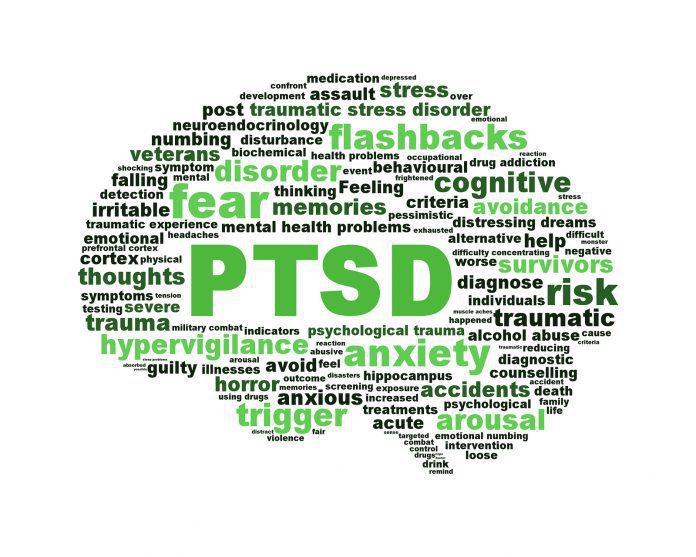Traumatic events do not just affect adults but also children who may feel estranged or detached from people, the world and their everyday lives. They may also suffer from recurring flashbacks and nightmares over the course of weeks or months. If your kid is suffering from any of these symptoms, which will be discussed later, he/she might be having posttraumatic stress disorder. Learn more about it in the following.
Understanding of PTSD
Posttraumatic stress disorder (PTSD) can occur to children who have witnessed or experienced a violent or life-threatening event, which may include but not limited to natural disasters, terrorism, physical assault, and personal attacks.
A victim or someone threatened by injury, violence or harm can also develop PTSD, which can follow immediately a couple of weeks or even years post the traumatic event.
Traumas that can make PTSD occur also include the violent death of a close friend or a loved one or a serious threat or harm to a family member or oneself. There are also situations that can cause posttraumatic stress disorder. A few of them include,
- Fire
- Violent acts
- Sexual abuse
- Car accidents
- Being diagnosed with an illness like cancer
- Witnessing a person go through a traumatic event
- Manmade disasters
In other cases, PTSD can happen following repeated exposure to a traumatic event. For example, surviving a traumatic event that caused the death of family members or loved ones can also lead to PTSD.
PTSD sufferers re-experience the traumatic event through nightmares, memories and flashbacks especially when reminded of the objects, places or events related to the traumatic experience.
Symptoms of PTSD
Children with PTSD can have anxiety, depression and stress symptoms, which may include but not limited to the following.
- Intrusive memories or thoughts of the event
- Fear and heartache when remembering the event
- Reenacting the event in drawings or plays
- Upsetting nightmares or dreams
- Avoiding places, objects or anything to remind of the event
- Flashbacks or feeling or acting as if the event is happening
- Unwanted memories that come back
- Feeling lumpy, nervous or startled when a memory of event is triggered by something
Other symptoms of PTSD
- Negative mood since the traumatic event happened
- Lasting beliefs about the world is unsafe
- Self-blaming
- Getting easily startled
- Trouble sleeping
- Inability to focus or pay attention
- Always being on the lookout for warning signs and danger
- Feeling angry, grouchy and cranky
- Inability to remember important components of the event
- Lacking interest in doing activities that he/she used to enjoy
- Preventing talking or thinking about the event
- Feeling estranged or detached from people
- Lasting physical reactions or anxiety
Treatment Methods
Check out the following for the treatment options available for PTSD in children.
Psychotherapy (Talk therapy)
This therapy will teach PTSD sufferers with specific life-coping strategies, such as identifying feelings of fear and managing anxiety and fear with self-soothing activities or relaxation techniques. It also includes talking through the event in order to understand those buried feelings. You might be asked to join the session if your kid is very young, though.
Cognitive behavioral therapy (CBT)
It is a problem-focused intervention type that teaches kids to become their own therapist rather than on focusing on past experiences. It also helps them recognize their thought patterns, and then look into when and where those patterns are hurting or helping them.
CBT lasts between 45 minutes to an hour weekly for a couple of months. However, this therapy might be more effective in older kids because it requires higher thinking skills.
Medical marijuana
High CBD strains may also play a significant role in the treatment of PTSD. In fact, a recent study to find at the Molecular Psychiatry revealed that cannabis might help patients with PTSD because it could relieve the symptoms, including recurrent nightmares.
Backing it up, a study published on Science Daily revealed that the participants were able to reduce PTSD symptoms. They experienced less avoidance of the events or situations reminding the trauma, reduced episodes of re-experiencing the trauma and decreased hyper-arousal.
MMJ that can be accessed at a medical cannabis dispensarycan reduce depression, relieve anxiety, promote restful sleep and increase appetite and relaxation. All these can help PTSD sufferers improve their life quality by coping with the symptoms.
Trauma Systems Therapy (TST)
This therapy teaches sufferers to develop skills for managing emotions during stressful times. TST recognizes that the stress is due to factors that include a child having the inability to control his/her behavioral or emotional state or not having enough support from the environment to regulate those feelings.
Medication
It can be a valuable addition to psychotherapy especially if the kid is feeling severe hopelessness, fear, and anxiety. Anti-anxiety/antidepressant medications can make a child feel calm and be in control. They can also help in applying the coping strategies learned in psychotherapy.
Final Thoughts
Understanding PTSD and learning what its symptoms are, parents will be better guided on how to help their children cope with the challenges and lessen their fears, anxieties, and worries.
With support from parents, loved ones and professionals, along with the right treatment approach or a combination of those mentioned with a medical professional’s guidance, a child can improve his/her life quality and survive PTSD.
